
Banyang Mbo Wildlife Sanctuary: A Hidden Gem in Cameroon
Nestled in the lush landscapes of southwestern Cameroon, the Banyang Mbo Wildlife Sanctuary is a paradise for nature lovers and wildlife enthusiasts. This protected area spans over 660 square kilometers and is home to a rich diversity of flora and fauna. Visitors can expect to see a variety of species, including forest elephants, chimpanzees, and numerous bird species. The sanctuary is a vital haven for endangered species, making it a significant location for conservation efforts. Exploring the sanctuary offers a unique and immersive experience. Guided tours are available, providing insightful information about the local ecosystem and the efforts to protect it. The sanctuary's dense forests and winding rivers create a picturesque backdrop for hiking, bird watching, and photography. Whether you're an avid naturalist or simply looking to escape the hustle and bustle of urban life, Banyang Mbo Wildlife Sanctuary provides an unparalleled opportunity to connect with nature. The local communities play an essential role in maintaining the sanctuary, and visitors can learn about their traditions and ways of life. Engaging with the locals not only enriches your visit but also supports sustainable tourism. The sanctuary's remote location means that it's less crowded than other tourist destinations, allowing for a peaceful and intimate experience with nature.
Local tips in Banyang Mbo Wildlife Sanctuary
- Hire a local guide to enhance your experience and ensure you see the best parts of the sanctuary.
- Wear comfortable hiking gear and bring insect repellent, as the terrain can be challenging and the area is home to many insects.
- Try visiting during the dry season (November to February) for easier access and better wildlife sightings.
- Respect local customs and engage with the communities to support sustainable tourism.
- Ensure you carry enough water and snacks, as facilities within the sanctuary are limited.
Banyang Mbo Wildlife Sanctuary: A Hidden Gem in Cameroon
Nestled in the lush landscapes of southwestern Cameroon, the Banyang Mbo Wildlife Sanctuary is a paradise for nature lovers and wildlife enthusiasts. This protected area spans over 660 square kilometers and is home to a rich diversity of flora and fauna. Visitors can expect to see a variety of species, including forest elephants, chimpanzees, and numerous bird species. The sanctuary is a vital haven for endangered species, making it a significant location for conservation efforts. Exploring the sanctuary offers a unique and immersive experience. Guided tours are available, providing insightful information about the local ecosystem and the efforts to protect it. The sanctuary's dense forests and winding rivers create a picturesque backdrop for hiking, bird watching, and photography. Whether you're an avid naturalist or simply looking to escape the hustle and bustle of urban life, Banyang Mbo Wildlife Sanctuary provides an unparalleled opportunity to connect with nature. The local communities play an essential role in maintaining the sanctuary, and visitors can learn about their traditions and ways of life. Engaging with the locals not only enriches your visit but also supports sustainable tourism. The sanctuary's remote location means that it's less crowded than other tourist destinations, allowing for a peaceful and intimate experience with nature.
When is the best time to go to Banyang Mbo Wildlife Sanctuary?
Unmissable attractions to see
Musée des civilisations de Dschang
Explore the vibrant history and diverse cultures of Cameroon at the Musée des Civilisations de Dschang, a must-visit for every traveler.
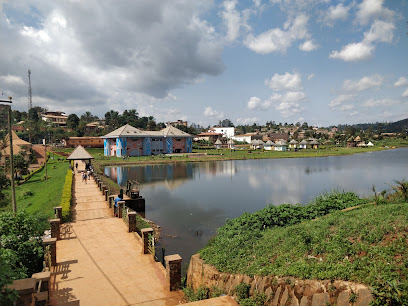
Chefferie Bandjoun
Discover the vibrant Bamileke culture at Chefferie Bandjoun, a living museum of Cameroonian tradition and history.
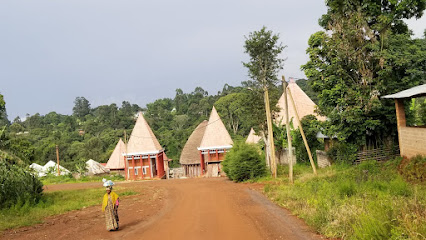
Grotte Fovu, Baham
Explore Grotte Fovu: A sacred Cameroon site with stunning rock formations, lush nature, and mystical traditions. A unique cultural and natural experience.
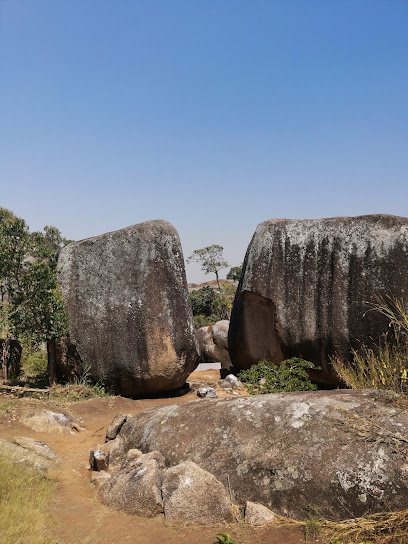
Nkongsamba
Discover Nkongsamba - a hiking paradise in Cameroon offering breathtaking landscapes and immersive cultural experiences in nature's embrace.
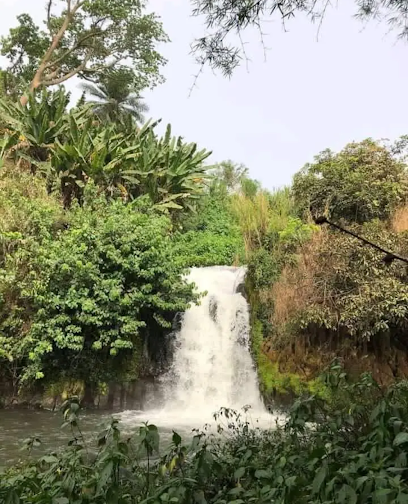
Chefferie Bafang
Discover the rich cultural heritage of Cameroon at Chefferie Bafang, a vibrant testament to Bafang's traditions and royal history.
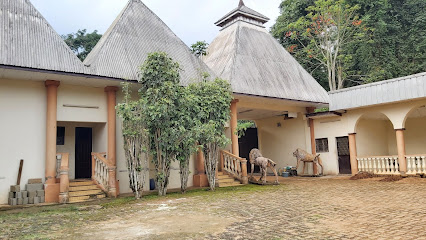
Chute de Lefog
Discover the tranquil beauty of Chute de Lefog, a hidden waterfall in Dschang, Cameroon, perfect for nature lovers and photography enthusiasts.
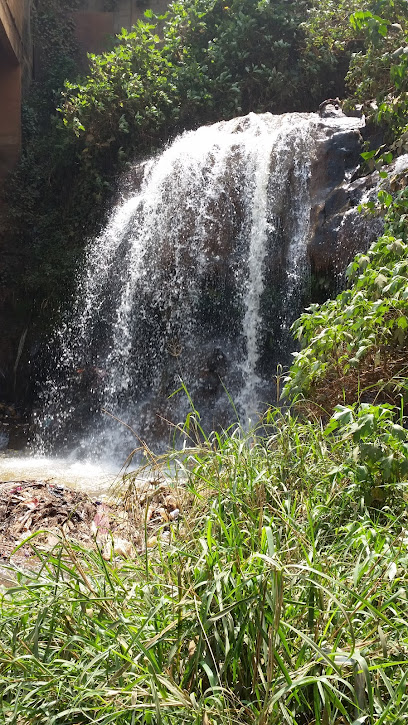
Muanenguba twin lakes Bangem
Explore the breathtaking beauty and tranquility of Muanenguba Twin Lakes in Bangem, a must-visit destination for nature lovers and adventure seekers.
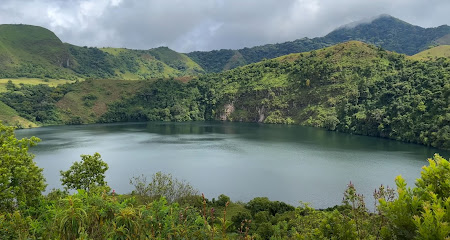
Les Chutes De Tchelepi, Bamougong
Experience the enchanting Les Chutes De Tchelepi, a hidden gem in Bamougong, showcasing breathtaking waterfalls surrounded by lush natural beauty.
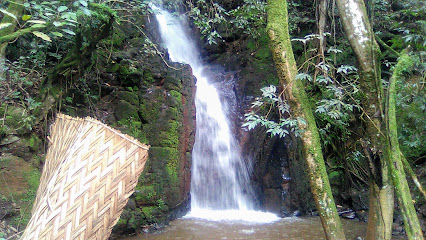
Fiangep Waterfall, Njeh
Discover the enchanting beauty of Fiangep Waterfall in Fontem, a must-visit destination for nature lovers and adventure seekers alike.
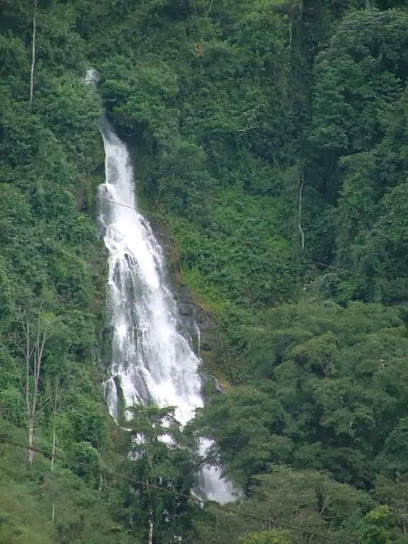
Grotte Ndemvoh
Explore the majestic Grotte Ndemvoh in Bafou, Cameroon, a natural wonder filled with stunning rock formations and rich cultural heritage.
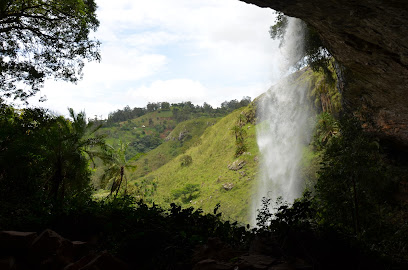
Kongne begin
Explore the hidden gem of Kongne Begin in Kumba, Cameroon, where lush landscapes and vibrant culture come together for an unforgettable experience.
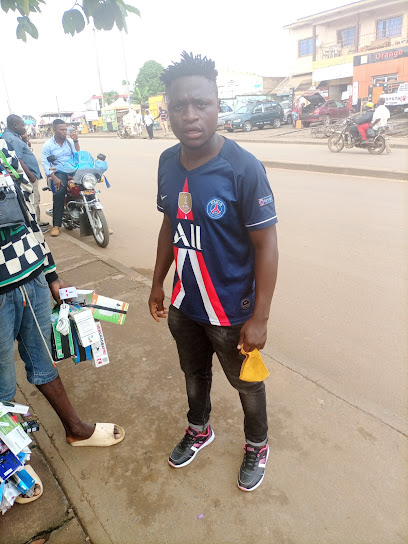
Noble Man Junction Bamenda
Explore the vibrant community spirit and local culture at Noble Man Junction, a must-visit tourist attraction in Bamenda, Cameroon.

Kooh Mekengh
Experience the natural beauty and cultural richness of Kooh Mekengh, a breathtaking tourist attraction in Bafou, Cameroon.
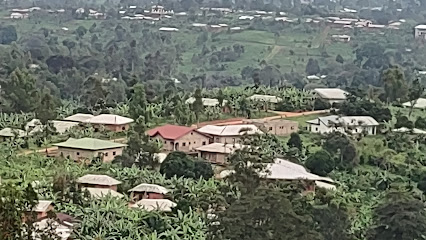
Bangam Centre
Explore Bangam Centre: A vibrant tourist attraction in Groupement Bangam, showcasing rich culture, local crafts, and authentic culinary delights.
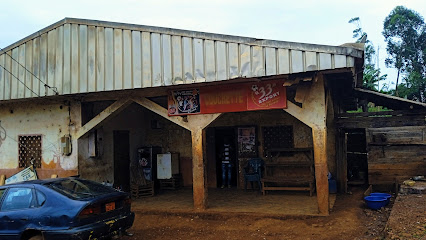
Yasu Tour Marvels
Discover the authentic farm life and breathtaking landscapes at Yasu Tour Marvels in Dikome Balue, Cameroon - where tradition meets nature.
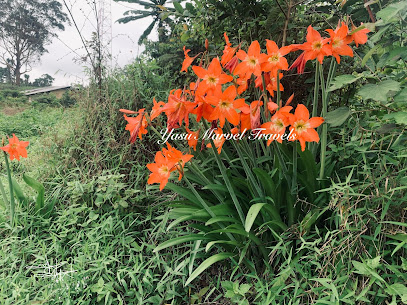
Essential places to dine
RESTAURANT QUICK'N CHEAP
Experience authentic Cameroonian cuisine at Quick'n Cheap in Dschang—affordable dining with delicious flavors awaits you!
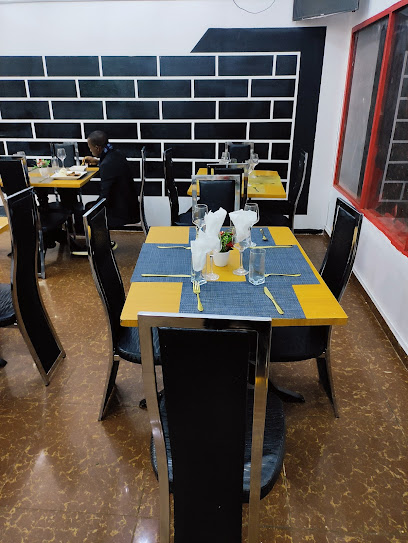
PLATINIUM LOUNGE : Snack - bar -restaurant - hébergement
Discover the flavors of Dschang at PlatinUM Lounge - where culinary excellence meets cozy ambiance.
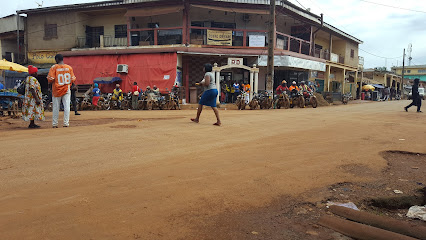
Bangem Central
Discover authentic flavors at Bangem Central - where local cuisine meets global tastes in an inviting setting.
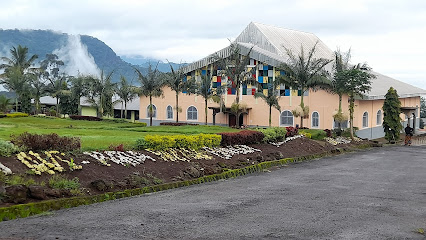
Ô VILLAGE BANTOU
Experience authentic barbecue at Ô VILLAGE BANTOU in Nkongsamba - where smoky flavors meet vibrant culture.
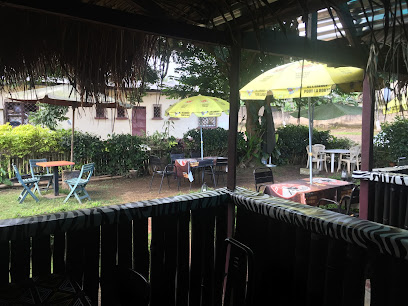
Mami Titi's Restaurant, Batibo
Discover authentic Cameroonian cuisine at Mami Titi's Restaurant in Batibo - where tradition meets flavor.
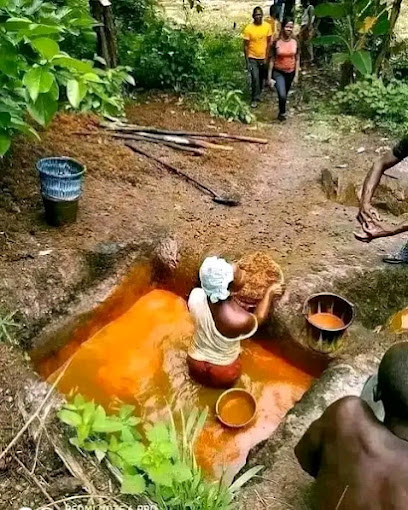
Macolo Cafe Restaurant
Discover the essence of Cameroonian cuisine at Macolo Cafe Restaurant in Bamenda - where every meal tells a story.
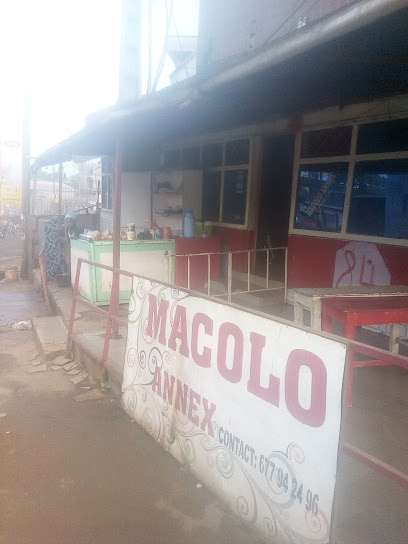
Les Pizzérias d'Ysis et L'after Fruit Juice Bar
Experience authentic pizza and refreshing fruit juices at Les Pizzérias d'Ysis et L'after Fruit Juice Bar in Nkongsamba.
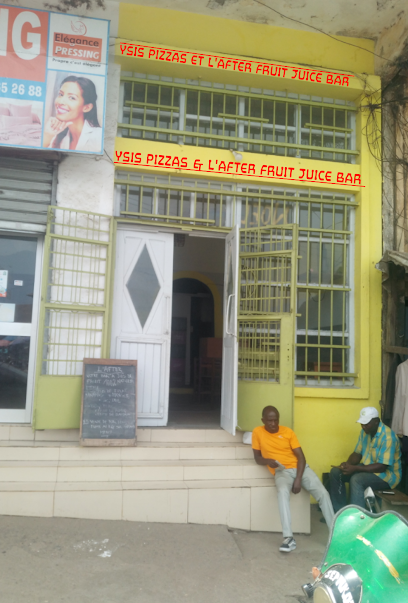
Markets, malls and hidden boutiques
Medico Shopping
Discover the ultimate shoe shopping experience at Medico Shopping in Nkongsamba, offering a diverse selection of styles for every occasion.
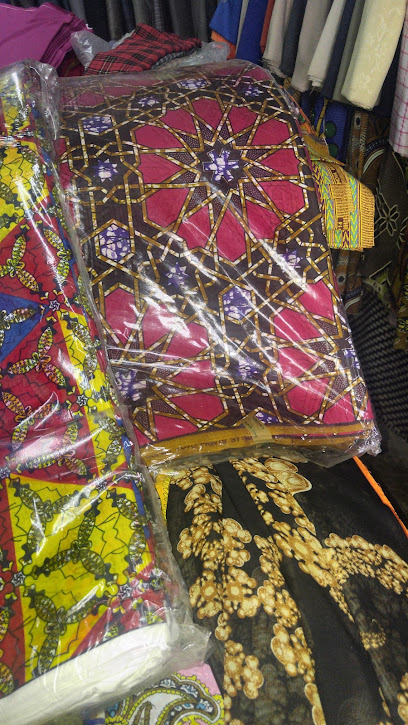
Boulangerie
Savor the delightful flavors of freshly baked goods at Boulangerie, a must-visit bakery for tourists seeking authentic local pastries.
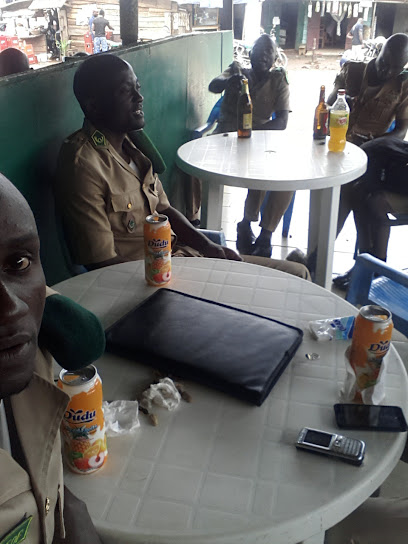
Chez Ministre
Explore the vibrant culture of Cameroon at Chez Ministre, Dschang's premier boutique offering unique handcrafted goods and local artistry.
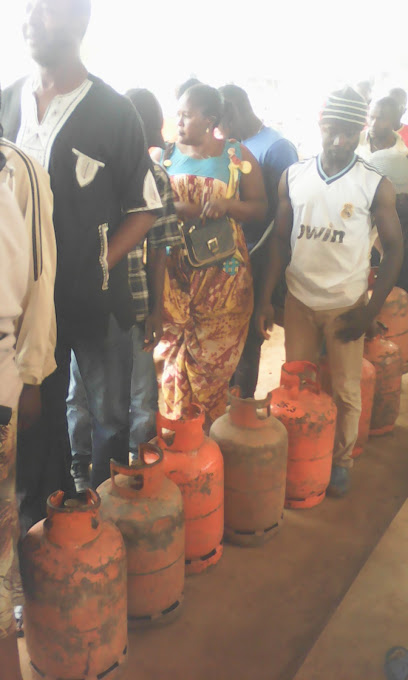
Boutique Papa PAULIN
Explore the delightful offerings at Boutique Papa PAULIN in Dschang, a must-visit destination for unique local products and souvenirs.
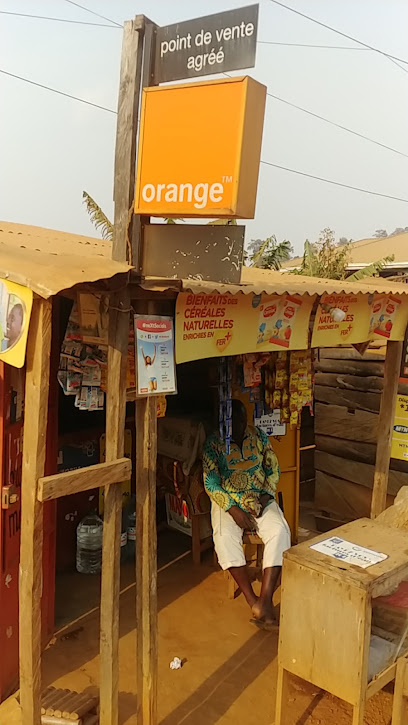
La Boutique de Mathieu
Explore the vibrant local crafts and unique souvenirs at La Boutique de Mathieu in Dschang, a treasure trove of cultural artistry.
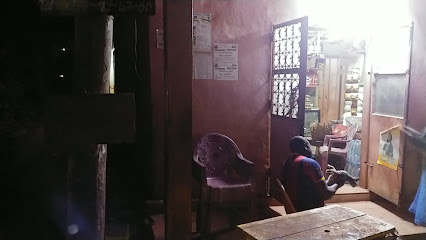
Marché Balivounli
Explore Marché Balivounli in Bafou, Cameroon, where fresh produce meets vibrant local culture in a bustling market experience.
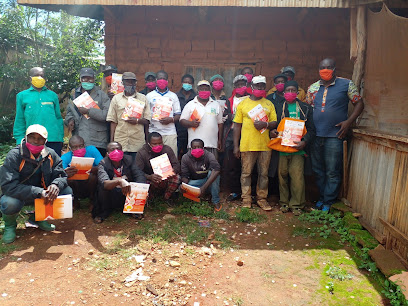
Buying and selling of goods
Explore Dschang's top shoe store for an unmatched selection of stylish and comfortable footwear, perfect for every occasion.
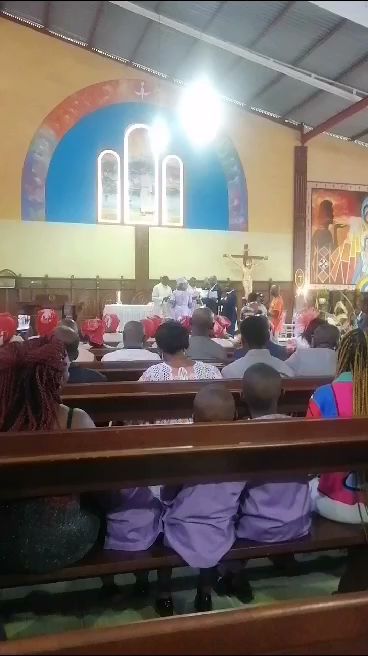
Boutique local st augustin
Explore the authentic flavors of Cameroon at Boutique Local St. Augustin, a charming grocery store in Dschang offering fresh produce and local products.

Auberge Constant
Discover the authentic flavors of Cameroon at Auberge Constant, your go-to grocery store in Mbokambo for fresh produce and local delicacies.

REINE DE SHOPPING
Explore Reine de Shopping in Nkongsamba: A boutique offering a unique blend of modern fashion and traditional craftsmanship.
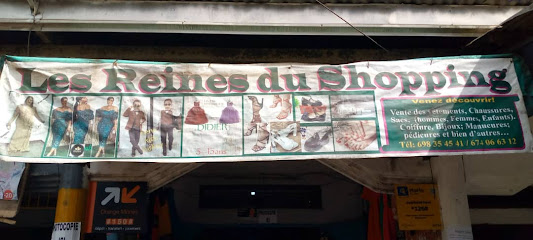
fany shop
Explore Fany Shop in Nkongsamba for exquisite fashion accessories that blend local craftsmanship with contemporary style.
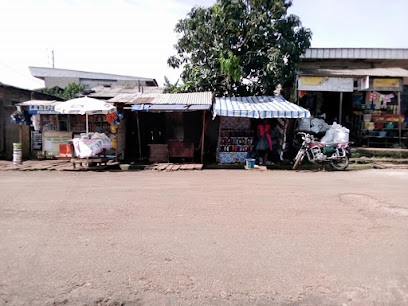
AP shopping
Discover stylish apparel and unique local designs at AP Shopping in Nkongsamba, a must-visit clothing store for every fashion enthusiast.
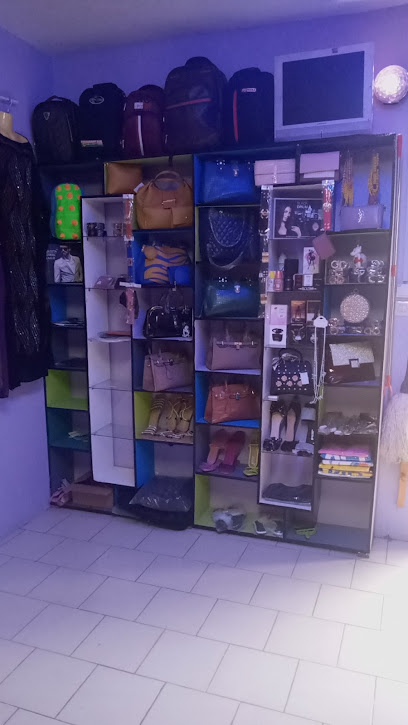
Boutique Orange DSCHANG 2
Explore Boutique Orange DSCHANG 2 for the latest mobile technology and accessories in Dschang, ensuring you stay connected throughout your travels.
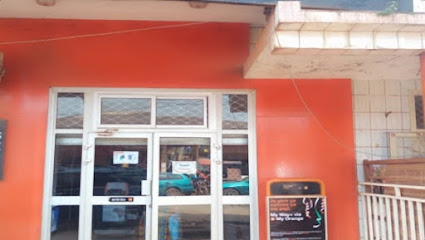
Supermarché BAO
Explore local flavors and unique finds at Supermarché BAO, Nkongsamba's vibrant shopping hub showcasing the heart of Cameroonian culture.
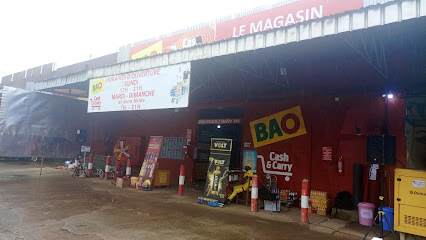
Chouna Telecom
Stay connected in Dschang at Chouna Telecom, your reliable source for mobile devices and accessories in the heart of the region.
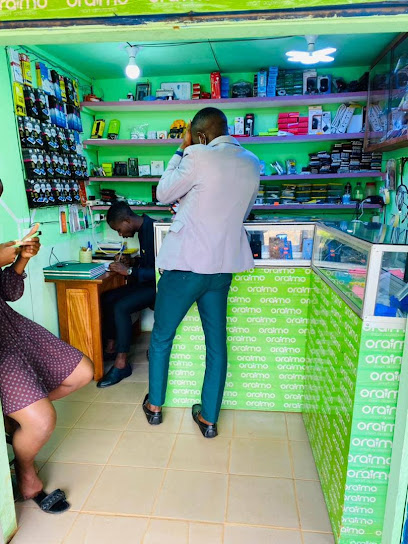
Essential bars & hidden hideouts
Central Bar
Experience the lively atmosphere of Central Bar in Nkongsamba, where great drinks and local culture come together for an unforgettable night.
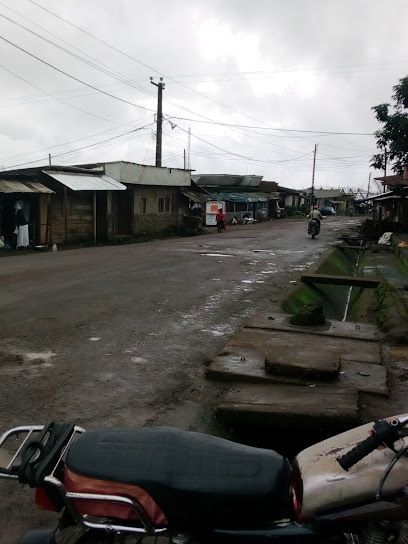
Ynot Snack-Bar-Nightclub
Discover the heart of Nguti's nightlife at Ynot Snack-Bar-Nightclub, where vibrant music, delicious snacks, and unforgettable memories await.
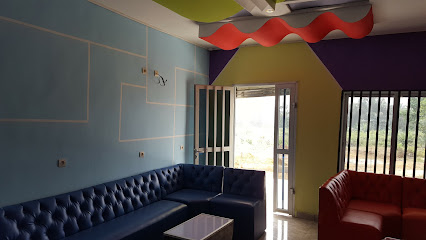
Alt Mbiakop
Discover Alt Mbiakop, Nkongsamba's lively bar perfect for socializing, refreshing drinks, and experiencing local culture in a vibrant atmosphere.
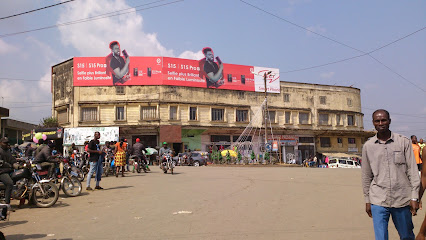
Hélène bar de Balembo
Experience the vibrant ambiance of Hélène Bar de Balembo, where local culture and delightful flavors meet in a welcoming atmosphere.
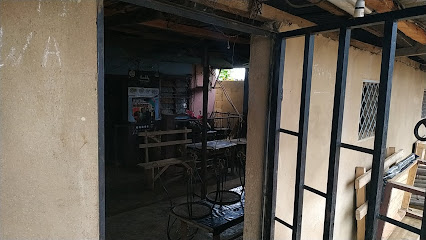
Blue Sky Plus
Experience the vibrant nightlife at Blue Sky Plus in Mamfe, where great drinks and a friendly atmosphere await every visitor.
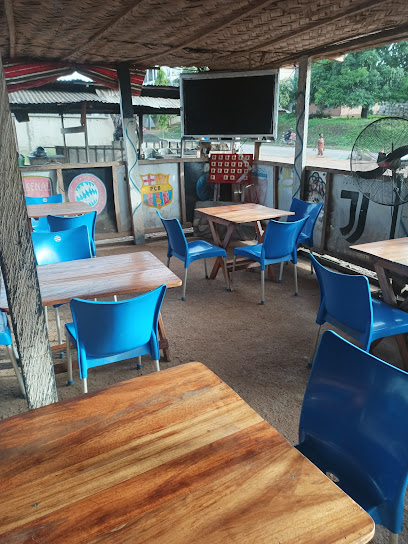
CENTRALE BAR
Discover the vibrant atmosphere of Centrale Bar in Dschang, where locals and tourists come together for great drinks and unforgettable moments.

Bar Robert Pirres
Discover the vibrant atmosphere of Bar Robert Pirres in Nkongsamba, where locals and tourists enjoy a delightful selection of drinks and live music.

Zebaze bar
Experience the vibrant local culture at Zebaze Bar in Dschang, where refreshing drinks and lively conversations await in a cozy atmosphere.

Prof's Bar
Discover the vibrant nightlife of Batibo at Prof's Bar, where local flavors and friendly atmosphere come together for an unforgettable experience.

BADECO BAR
Discover the vibrant nightlife at BADECO BAR in Dschang, where local flavors and friendly atmosphere blend for an unforgettable experience.

Ambelle quarter
Experience the lively nightlife and rich cultural scene of the Ambelle Quarter in Nguti, where tradition meets contemporary vibes.

bwanga Agnès
Discover the vibrant nightlife at Bwanga Agnès Bar in Bakoko, where friendly locals and refreshing drinks create an unforgettable experience.

Metsang Bar
Experience the vibrant atmosphere of Metsang Bar in Bafou, where local culture meets refreshing drinks in a warm and inviting setting.

BAR QUEL TÊTE ''BAMENGUI''
Experience authentic Cameroonian nightlife at Bar Quel Tête 'Bamengui' in Kekem, where vibrant energy meets local culture in a lively atmosphere.

Local Phrases about Banyang Mbo Wildlife Sanctuary
-
- HelloNki
[n-kee] - GoodbyeNdeh
[n-deh] - YesEh
[eh] - NoAa
[aa] - Please/You're welcomeSaa
[saa] - Thank youSaa
[saa] - Excuse me/SorryEhh..
[ehh..] - How are you?Nki lah?
[n-kee lah?] - Fine. And you?Aa. Ee lah?
[aa. ee lah?] - Do you speak English?Kah Dee maa Englai?
[kah dee maah eng-lai?] - I don't understandAh beh maa
[ah beh maah]
- HelloNki
-
- I'd like to see the menu, pleaseBeh ka pang, saa
[beh ka pang, saa] - I don't eat meatAh beh ka nyama
[ah beh ka nyama] - Cheers!Yambe
[yam-beh] - I would like to pay, pleaseBeh ka fee, saa
[beh ka fee, saa]
- I'd like to see the menu, pleaseBeh ka pang, saa
-
- Help!Mbaa!
[mbaa!] - Go away!Nyaa!
[nyaa!] - Call the Police!Poli sii!
[poh-lee see!] - Call a doctor!Doktee sii!
[dok-tee see!] - I'm lostAh beh nyee
[ah beh nyee] - I'm illAh beh nyen
[ah beh nyen]
- Help!Mbaa!
-
- I'd like to buy...Beh ka nyo...
[beh ka nyoh...] - I'm just lookingAh beh nyo
[ah beh nyoh] - How much is it?Kah pang eh?
[kah pang eh?] - That's too expensiveEhh.. nyam beh
[ehh.. nyam beh] - Can you lower the price?Kah pang eh be fee?
[kah pang eh be fee?]
- I'd like to buy...Beh ka nyo...
-
- What time is it?Pang eh nki?
[pang eh n-kee?] - It's one o'clockPang eh nyu ka
[pang eh nyu ka] - Half past (10)Nyu ka kaPang (10)
[nyu ka ka-pang (10)] - MorningSaa
[saa] - AfternoonEe
[ee] - EveningNdeh
[n-deh] - YesterdaySoo
[soo] - TodayNki
[n-kee] - TomorrowNki kaPang
[n-kee ka-pang] - 1Nyu
[nyu] - 2KaPang
[ka-pang] - 3KaPang Nyu
[ka-pang nyu] - 4KaPang Nyu KaPang
[ka-pang nyu ka-pang] - 5KaPang Nyu KaPang Nyu
[ka-pang nyu ka-pang nyu] - 6KaPang Nyu KaPang Nyu KaPang
[ka-pang nyu ka-pang nyu ka-pang] - 7KaPang Nyu KaPang Nyu KaPang Nyu
[ka-pang nyu ka-pang nyu ka-pang nyu] - 8KaPang Nyu KaPang Nyu KaPang Nyu KaPang
[ka-pang nyu ka-pang nyu ka-pang nyu ka-pang] - 9KaPang Nyu KaPang Nyu KaPang Nyu KaPang Nyu
[ka-pang nyu ka-pang nyu ka-pang nyu ka-pang nyu] - 10KaPang Nyu KaPang Nyu KaPang Nyu KaPang Nyu KaPang
[ka-pang nyu ka-pang nyu ka-pang nyu ka-pang nyu ka-pang]
- What time is it?Pang eh nki?
-
- Where's a/the...?Nki eme...
[n-kee eme...] - What's the address?Pang eh eme?
[pang eh eme?] - Can you show me (on the map)?Kah pang eh nyee (si map)?
[kah pang eh nyee (see map)?] - When's the next (bus)?Pang nyee (bus) nyu?
[pang nyee (bus) nyu?] - A ticket (to ....)Nyee (to ....) kaPang
[nyee (to ....) ka-pang]
- Where's a/the...?Nki eme...
History of Banyang Mbo Wildlife Sanctuary
-
Banyang Mbo Wildlife Sanctuary was officially established in 1996 to protect its rich biodiversity and unique ecosystems. The sanctuary covers approximately 66,000 hectares and is located in the South West region of Cameroon. It was created as part of broader conservation efforts to preserve the habitat of various endangered species including forest elephants, primates, and numerous bird species.
-
The area encompassing Banyang Mbo Wildlife Sanctuary has long been home to indigenous communities such as the Banyangi and Mbo people. These communities have deep-rooted cultural ties to the land and rely on its resources for their livelihoods. Traditional practices and knowledge systems have played a significant role in the sustainable management of the sanctuary's natural resources.
-
Throughout the late 20th and early 21st centuries, numerous biodiversity surveys were conducted to document the flora and fauna of Banyang Mbo Wildlife Sanctuary. These surveys revealed the presence of several endangered species, prompting increased conservation efforts. Various NGOs and international organizations have since partnered with local authorities to implement conservation programs aimed at protecting the sanctuary's diverse ecosystems.
-
The sanctuary has faced several challenges over the years, including illegal logging, poaching, and land encroachment. These activities have often led to conflicts between conservation authorities and local communities. Efforts to mitigate these challenges have included community engagement initiatives, the establishment of patrols, and the introduction of alternative livelihood programs to reduce dependence on the sanctuary's resources.
-
In recent years, ecotourism has been identified as a potential avenue for sustainable development within Banyang Mbo Wildlife Sanctuary. Ecotourism initiatives aim to provide economic benefits to local communities while promoting conservation awareness among visitors. Projects include the development of eco-lodges, guided tours, and educational programs that highlight the sanctuary's unique biodiversity and cultural heritage.
-
Banyang Mbo Wildlife Sanctuary has become a focal point for scientific research and environmental education. Universities and research institutions from around the world conduct studies within the sanctuary to better understand its ecosystems and develop effective conservation strategies. Additionally, educational programs are conducted to raise awareness about the importance of biodiversity conservation among local communities and the broader public.
Banyang Mbo Wildlife Sanctuary Essentials
-
Banyang Mbo Wildlife Sanctuary is located in the Southwest Region of Cameroon. The nearest international airport is Douala International Airport (DLA), approximately 200 kilometers away. From Douala, you can take a domestic flight to Bafoussam or travel by road. The journey by car or bus from Douala to the sanctuary typically takes around 6 to 8 hours depending on road conditions. Private taxis and car rentals are also available for a more comfortable trip.
-
Within the sanctuary and its surrounding areas, transportation options include local taxis and motorbike taxis (known as 'benskins'). For longer trips, 4x4 vehicles are recommended due to the rough terrain. Some tour operators offer guided tours with transportation included. Public buses connect nearby towns and villages, but schedules can be irregular. It is advisable to arrange transportation in advance for a smoother experience.
-
The official currency in Cameroon is the Central African CFA Franc (XAF). Credit cards are accepted in larger hotels and some restaurants in urban areas, but it is advisable to carry cash, especially when visiting rural areas like Banyang Mbo. ATMs are available in larger towns, but may not be reliable. Make sure to exchange sufficient currency in Douala or Bafoussam before heading to the sanctuary.
-
Banyang Mbo Wildlife Sanctuary is generally safe for tourists, but it is important to take standard precautions. Avoid walking alone at night and be cautious in unfamiliar areas. Petty crimes like pickpocketing can occur in crowded places. Some areas in the Southwest Region have experienced political unrest; always stay updated on local news and follow travel advisories. It's also important to follow the guidelines provided by park authorities to ensure your safety within the sanctuary.
-
In case of an emergency, dial 112 for immediate assistance. The nearest medical facilities are in the towns of Kumba and Bafoussam, so it is advisable to have a first aid kit with you. Travel insurance that covers medical emergencies is highly recommended. For minor health issues, bring essential medications as pharmacies can be limited in rural areas. Know the location of the nearest ranger station and always carry a charged mobile phone.
-
Fashion: Do dress modestly and wear light, breathable clothing suitable for the tropical climate. Avoid wearing flashy jewelry. Religion: Do respect local customs and traditions. Ask for permission before photographing religious or cultural ceremonies. Public Transport: Do be patient and polite. Public transport can be crowded and schedules are often flexible. Greetings: Do greet people with a handshake and a smile. A slight bow of the head is also appreciated. Eating & Drinking: Do try local dishes and accept food offerings graciously. Don’t refuse hospitality, as it is considered impolite. Avoid drinking tap water; bottled water is recommended.
-
To experience Banyang Mbo Wildlife Sanctuary like a local, engage with the local communities and participate in guided nature walks. Visit the local markets to buy fresh produce and artisanal crafts. Engage with park rangers and guides, who can offer insights into the wildlife and conservation efforts. Don't miss the chance to see unique species like the drill monkey and the forest elephant. Always be respectful of the natural environment and adhere to conservation guidelines.
Nearby Cities to Banyang Mbo Wildlife Sanctuary
-
Things To Do in Nkongsamba
-
Things To Do in Mamfe
-
Things To Do in Mbouda
-
Things To Do in Bafoussam
-
Things To Do in Bamenda
-
Things To Do in Buea
-
Things To Do in Douala
-
Things To Do in Tiko
-
Things To Do in Foumban
-
Things To Do in Calabar
-
Things To Do in Limbe
-
Things To Do in Edea
-
Things To Do in Bafia
-
Things To Do in Uyo
-
Things To Do in Malabo





